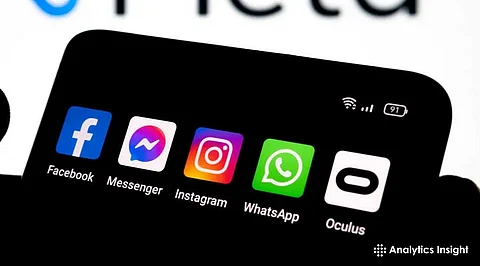

Meta's marketing transformation from social media giant to messaging giant is a bold realignment of its revenue playbook. Previously reliant on the universe of Facebook posts and ads, the company is now banking on WhatsApp, a $19 billion 2014 buy, to become a revenue anchor for growth.
The transformation is a sign of a larger transformation: individuals share less openly and more in private, and Meta wants to make money. Five items describe how WhatsApp becomes a revenue behemoth, pushing Facebook's legacy model to the rearview mirror.
Facebook's domination of Meta's cash cow days is under threat. User growth plates in developed markets, and young consumers defect to competitors such as TikTok. Ad revenue, a geyser a few years ago, tapers off as privacy regulations stiffen and competition intensifies. Meanwhile, WhatsApp's 2 billion-plus users, mostly in emerging markets, send 100 billion messages every day. This behaviour shift, from swiping feeds to tapping chats, forces Meta to shift. Messaging, not newsfeeds, is the new engagement and profitability frontier, with WhatsApp at the forefront.
WhatsApp itself eschews old-fashioned ads, but Meta compensates with a clever workaround: click-to-message ads. They're purchased on Facebook and Instagram, where a tap opens up a WhatsApp chat. By 2024, the strategy will reach a $10 billion annualized run rate, according to Meta's earnings calls, up 40% quarter-on-quarter.
Indian or Brazilian mom-and-pop stores, without shiny websites, prosper on this direct-to-consumer route. The company marries Meta's ad empire with WhatsApp's informality, showing that messaging can be profitable even if it can't destroy its minimalist look.
Aside from ads, WhatsApp also charges businesses directly via its Business API. Big companies, such as airlines or retailers, pay per chat to send reminders, respond to questions, or make sales pitches. Income from this was $1.5 billion per year as of early 2025, doubling from two years earlier, with growth quicker than Meta's ad business.
In India alone, where 500 million daily users chat, businesses rely on WhatsApp for everything from order confirmations to customer support. This consistent flow, however small compared to ad hauls, points to a scalable future as more businesses join.
WhatsApp's Channels, introduced in 2023, provide another layer. This one-to-many broadcast mode allows brands or influencers to broadcast updates to followers, newsletter-style, but in real-time. Still in nascent rollout in markets such as Singapore and Colombia, Channels has the potential to be tapped.
Monetization is still in the air, ads can sneak in, or premium ones can develop, but Meta sees this as a goldmine. Companies already seek ways to reach big audiences without spamming private threads. Channels can make WhatsApp a hybrid of messaging and marketing, boosting its revenue pull.
Artificial intelligence fuels Meta's messaging strategies further. AI-driven generative robots, tested in 2025, manage customer support for small businesses on WhatsApp, saving dollars and boosting efficiency. A São Paulo retailer or Jakarta cafe can take orders and respond to queries 24/7 without staff.
olfe Research analysts put this at a $30–40 billion opportunity by the end of the decade, based on WhatsApp's global reach. AI also makes ad targeting more efficient, connecting businesses with the right chatters. This technology boost turns WhatsApp into a lean, profitable machine.
Meta's shift from Facebook to WhatsApp reorients its financial base. Social streams recede as messages rise, 600 million daily work chats on Meta's platforms as of late 2023 affirm the trend. WhatsApp's combination of ad-supported clicks, pay-to-play offerings, and AI powers a money-making machine that bypasses Facebook's plateau.
Growing markets, where WhatsApp is the SMS king, fuel this shift, and Channels and AI bring the promise of fatter paychecks. Facebook constructed the empire, but WhatsApp reimagines it, profiting from chats.
This ad gamble relies on delivery. WhatsApp's ad-free philosophy must remain intact, or users will bolt, but profit requires experimentation. Scaling AI and Channels worldwide, particularly in rough markets such as the U.S., where iMessage reigns supreme, is challenging.
Nevertheless, Meta's wager appears wise: WhatsApp's growth exceeds Facebook's, and its tools appeal to enterprises globally. Messaging will account for 10% of Meta's take by 2025, analysts predict, a column rising quickly. The pivot plays out, a silent revolution in which whispers, not posts, fuel the bottom line.
